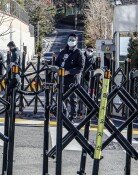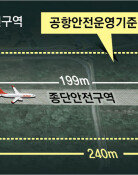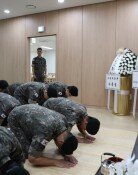Government Demands Japan Revise 35 History Textbook Passages
Government Demands Japan Revise 35 History Textbook Passages
Posted May. 08, 2001 10:20,
The government made an official demand yesterday that Japan revise 35 parts of its school textbooks, including the correction of Japan’s claim to have had control of “Imna” and the omission of the forced draft of “military comfort women.”
Minister of Foreign Affairs and Trade Han Seung-Soo summoned the Japanese Ambassador, Terusuke Terada, yesterday to his office to hand over the 36 pages correction proposal along with the “Aide Memoire.” He urged the Japanese government to take a sincere and positive measure with regard to the Japanese history textbooks.
Minister Han said, "The distortions made in the Japanese history textbooks spur the pain inflicted on our people’s hearts. The textbook distortions damage the friendly ties between the two countries. We request Japan to revise the textbooks as soon as possible and take fundamental measures so that the historic distortions in the textbooks will not ever occur again."
Out of 35 parts for the correction, 25 parts in a new textbook authored by the Association to Make New History Textbooks (a group of right-wing scholars) and 10 parts in seven existing textbooks were requested to revise.
Textbooks published by the Huso Publishing Company describe Korea as "an arm thrust against Japan from the continent," citing it as a threat against the country. Regarding the 16th century invasion of Korea, they describe it as "dispatch of troops to Choson." The textbooks describe Korea as a subject state of China, the forced annexation of Korea by Japan as a means to help the modernization of Choson." They also describe that "some people in Korea were in agreement with this".
Textbooks published by the Osaka Publishing Company and Simiz Publishing Company describe "Donghak Farmers’ War," which was a war against the feudalism as well as foreign powers, as "Donghak revolt." Textbooks published by the Japanese Education Publishing Company describe that "Because Ahn Jung-Kuen assassinated Ito Hirobumi, Japan annexed Korea."
The government is considering various actions if Japan rejects its demands, such as delaying the opening of the domestic cultural market to Japan. The government will also seek various measures in the international diplomatic area, such as the U.N. General Assembly.
Meanwhile, Japan’s ambassador Terada said he would deliver the Korean government’s message to the Japanese government. He also said he was fully aware of how serious Korean government and the public regard the issue. He added, "I feel sorry to have occasioned much anxiety to President Kim Dae-Jung and the Korean government officials who seek to improve Korea-Japan relation."
The government committee will further discuss on this issue of Japanese history textbooks in a meeting which will include the officials of Ministry of Culture and Tourism on 10th.
Kim Young-Sik spear@donga.com







